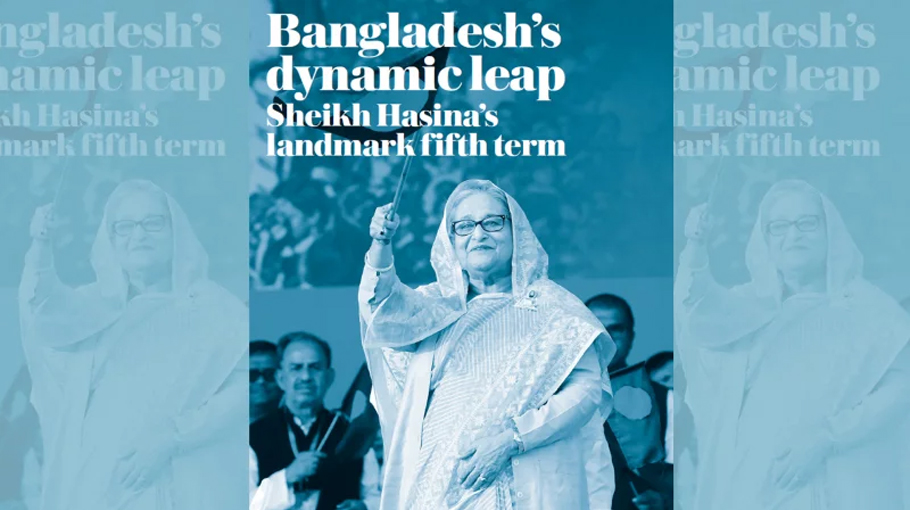Bangladesh’s dynamic leap Sheikh Hasina’s landmark fifth term

According to international development observers, Hasina’s reforms have done a great deal to empower women and have practically eradicated mass hunger, while significantly reducing abject poverty.46 The prime minister’s administration has fought to uphold a uniquely secular constitution, and safeguard the rights and freedoms of Bangladesh’s religious minorities, such as the thriving Hindu, Buddhist and Christian communities.47 Bangladesh has also significantly invested in improving the lives of over a million Rohingya refugees, whom Bangladesh calls its guests — all of whom fled a brutal ethniccleansing campaign in Myanmar.48 Recently, tens of thousands of displaced families were relocated to a newly opened facility on Bhasan Char Island, where they are living in clean shelters, women are provided training in critical job skills, children are in school, and health care is offered free of charge.49 This is a massive humanitarian undertaking at a time when Myanmar is slowly disintegrating into a failed state, with competing military groups threatening serious security consequences for the subcontinent.50 Meanwhile, Bangladeshi technocrats working on meeting the country’s Sustainable Development Goals say that the nation’s future is linked to enhancing trade with the international community, rather than being a recipient of foreign aid.51 According to UN data, Bangladesh is well ahead of schedule in meeting key SDG benchmarks,52 and further expanding development into the countryside is a key goal outlined in Hasina’s Vision 2041.
Bangladesh will also continue to play an important role for the security of India’s restive northeast frontier,53 and defense and security cooperation between the two countries can be expected only to increase as Hasina solidifies her rule. Despite US criticism of the recent general election, the prime minister remains open to improved relations with Washington. When asked about US-Bangladesh relations in a press conference following her election victory, she replied: “I am not vengeful (but) very open-minded and liberal.
Rather it is good, I can listen and learn from criticism.” Her foreign policy, she added, was based on the principle “friendship to all, enmity to none,” and she joked that when she met Biden on the sidelines of the G20 summit in India in September, he took a selfie with her and her daughter, Saima Wazed.54 Washington’s criticism of Bangladesh’s election may not leave a lasting mark, but could well prove to be an unnecessary obstacle in bolstering the moderate states in South Asia that share a common vision for prosperity and stand as a bulwark against the proliferation of extremism in the region.
Oubai Shahbandar Oubai Shahbandar is a former Pentagon analyst. He is currently an international documentary filmmaker covering conflict zones and compelling humanitarian stories around the world.
Concluded
Adelle Nazarian is a foreign policy and media analyst and consultant with over 15 years of experience in journalism.
Source: Arab News




